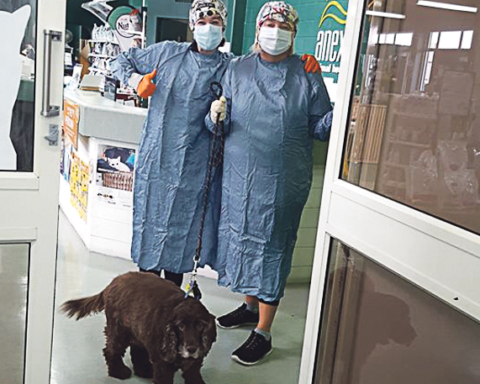Heart disease and increased blood pressure
Overweight dogs tend to have increased blood pressure (hypertension). The heart has an increased work load and this can lead to congestive heart failure.
Difficulty breathing and reduced stamina
In overweight animals, the additional fat in the chest restricts the expansion of the lungs. Because the heart, muscles and respiratory system are expected to do more work than designed for, overweight dogs have less endurance and stamina.
Decreased liver function
The liver stores fat so when a dog is overweight, an increased amount of fat builds up in the liver, this can result in decreased liver function.
Increased surgical and anaesthetic risk
The effects of obesity have serious ramifications during anaesthesia. Overweight animals will also take longer to recover from a general anaesthetic due to anaesthetic drugs sitting in the fatty tissue for longer.
Diabetes mellitus
One of the most common complications of obesity is the development of diabetes. There is no “cure” as such and once acquired this disease often needs to be managed life long through medications and diet.
Damage to joints, bones, and ligaments
Approximately one-quarter of overweight dogs develop serious joint complications such as osteoarthritis, or damage of ligaments.
Digestive disorders
An overweight dog has an increased risk of developing constipation and may also have more problems with intestinal gas and flatulence, which is not pleasant for the dog or the owner.
Heat intolerance
Due to the excess fat in overweight dogs, in the heat of summer they are less capable of regulating their body temperature.
Decreased immune function and skin and coat problems
Obesity in the dog is associated with decreased resistance to viral and bacterial infections. The risk of skin and coat diseases is also increased due to a build up of oils and excess skin folds.
Increased risk of cancer
There have been studies which suggest that obese dogs tend to have an increased risk of developing certain types of cancers.
Summary
It is evident from the above discussion that the overall health and quality of life are diminished in overweight dogs. Overweight dogs may become more irritable due to being hot, in pain, or simply uncomfortable. Overweight dogs die at a younger age than those maintained at an optimum weight.
The Anexa Team











